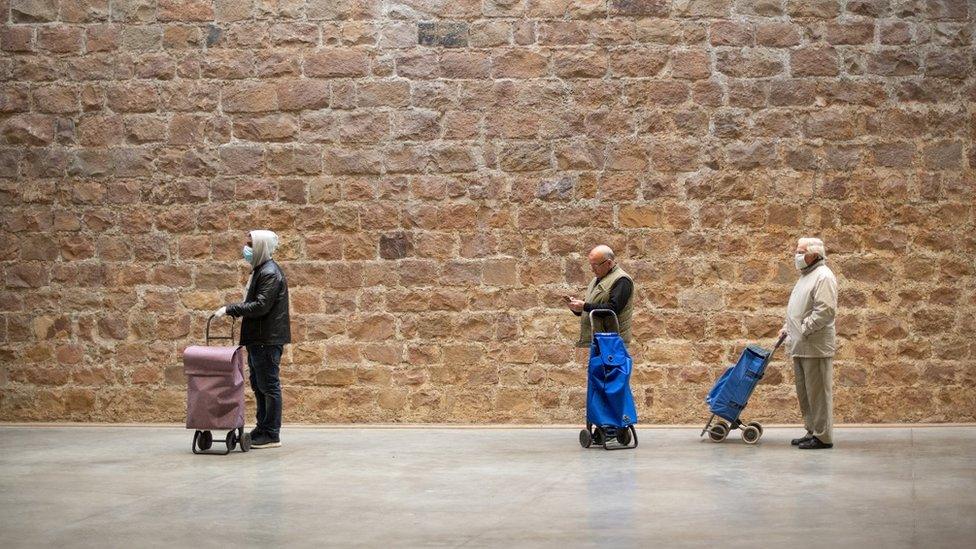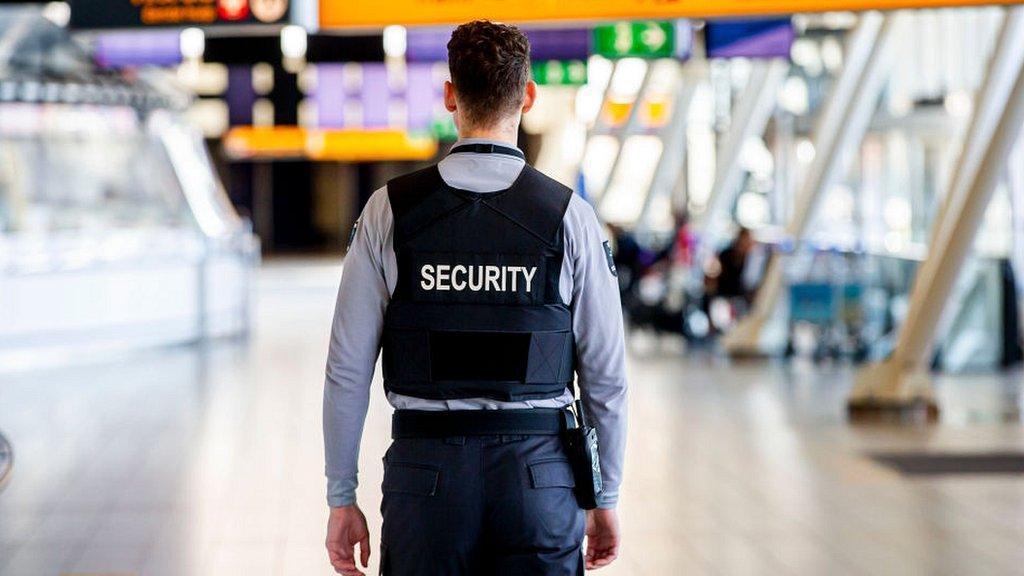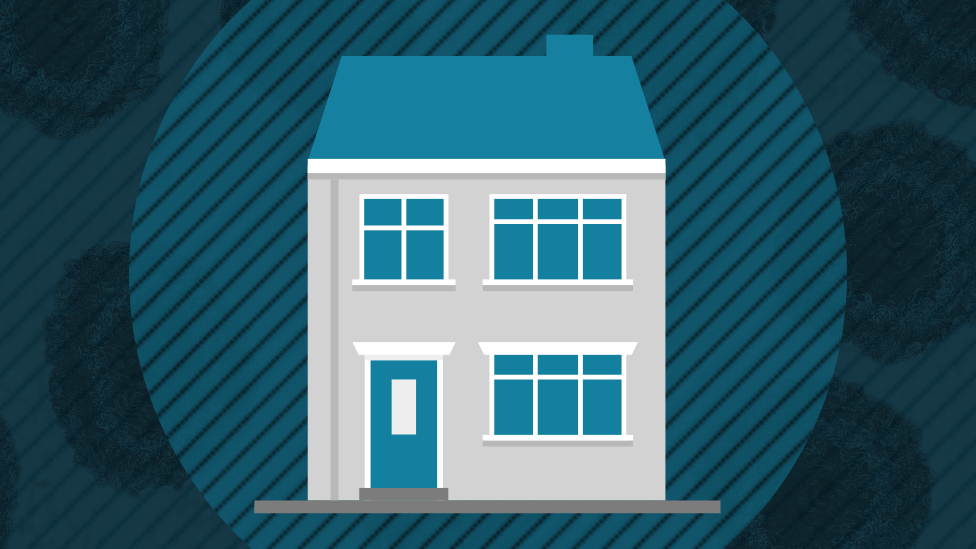Coronavirus: How are lockdowns and other measures being enforced?
- Published

The coronavirus pandemic is prompting unprecedented measures around the world.
From Spain to the US, governments are taking action to try to reduce the spread of the virus. As well as limiting international travel, some countries are also trying to restrict movement within their own borders and stopping people mixing in public.
Health policy and human rights experts warn countries face a difficult balance between protecting public health and infringing on personal freedoms.
So how are countries enforcing measures including quarantine and lockdown.
For weeks China, where the Covid-19 outbreak started, bore the brunt of its spread. There was widespread criticism of how it handled the virus in the beginning, with some accusing Beijing of playing down the severity of the outbreak.
As the situation deteriorated, a strict lockdown was first implemented in Wuhan, the outbreak's epicentre and one of the country's biggest cities. Transport was shut down in measures then rolled out elsewhere, impacting tens of millions of people.

What do I need to know about the coronavirus?
EASY STEPS: What can I do?
A SIMPLE GUIDE: What are the symptoms?
CONTAINMENT: What it means to self-isolate
UK LATEST: What is the 'delay' phase?
MAPS AND CHARTS: Visual guide to the outbreak

At least two citizen journalists, who tried to share information about the outbreak online, were reported missing.
Temperature checks were rolled out in the streets and some reported guards at entrances to residence buildings to keep people inside. China was accused of using its system of mass surveillance to help restrict movement and monitor people's health.
As the situation has eased, there are signs life in China is slowly returning to normal in places. But some groups, like Human Rights Watch, have been critical of the World Health Organization's (WHO) response to Beijing's handling of the outbreak - saying praise risks legitimising their curtailment of human rights and censorship.
Coronavirus: Life inside China's lockdown
After a rapid deterioration in recent weeks, Italy is now the second-worst hit country after China. There has been a gradual squeezing of public life to try to stop the spread. Travel restrictions were first implemented in the north, before being rolled out nationally.
The government has asked the 60-million population to stay at home where possible. Residents can only set foot outside due to an urgent need, like buying necessities, and they are expected to carry a form justifying the reason for travel. Those in violation face the threat of a €206 (£179; $235) fine for breaking the rules or even three months in prison.
People in Spain have also seen a lockdown of public life. All non-essential locations have been closed down and people have been told to only leave their homes when necessary. Spain's Prime Minister Pedro Sánchez declared a public emergency, for only the second time in recent history, telling Spaniards they faced "very difficult weeks" of sacrifices ahead.
There have been reports of security officials and the military deployed to monitor and discourage public gatherings. The armed forces are also stepping in to protect and house the country's homeless population, according to local reports.
Police use drones to enforce movement restrictions in Spain's fight against the coronavirus infection
Some countries have threatened tough punishment in order to stem the spread.
France has said it would issue fines of up to €135 (£123). On Monday, French Interior Minister Christophe Castaner said 100,000 police officers were being deployed to enforce stringent new measures to limit social contact.
President Emmanuel Macron earlier ordered people to stay at home and only go out for essential duties. Mr Macron said: "We are at war... we're fighting neither another army nor our own nation. But the enemy is here, invisible, untouchable... and is advancing."
Saudi Arabia has announced fines of up to $133,000 (£110,000) for people failing to declare correct health-related information and travel details as they enter the country.
Some nations have put bans on arrivals altogether, closing-off their land and air borders. Others have imposed mandatory 14-day quarantine periods for people flying in, including orders to self-isolate in private accommodation such as hotels.
Anyone not complying with new isolation rules in Australia will face the threat of heavy fines and even jail time in some areas. The most expensive punishment is in Western Australia, where those in violation could face handing over up to A$50,000 (£25,000).
New Zealand's Prime Minister Jacinda Ardern has warned that travellers who fail to adhere to their self-isolation rules could face fines and being kicked out altogether. "If you come here and have no intention of following our requests to self-isolate, frankly you are not welcome and out should leave before you are deported," she said.
The University of Westminster's Dr Adele McCormick demonstrates how to wash your hands
In the United States, officials from the Centers for Disease Control and Prevention (CDC) have the authority to prevent the entry and spread of communicable diseases from abroad and between states. This was notably enforced when Americans flown home from Wuhan were subject to mandatory quarantine on a Californian military base on their return.
The CDC points out that state, local and tribal officials also have police power functions, external to protect the health and wellbeing of citizens within their own borders. Some states have already implemented additional restrictions on public life, including banning gatherings of more than 50 people.
There have been isolated cases where rule-breaking has become an issue. In Kentucky one resident who refused to self-isolate had a police officer stationed outside his home, external to keep him inside, according to local reports.
- Published1 April 2020

- Published28 September 2020

- Published6 October 2021
